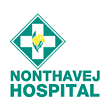Esophagus diseases
Stomach diseases, e.g.
Biliary tract diseases, e.g.
|
Liver diseases, e.g.
Intestine diseases, e.g.
|
Symptoms of gastrointestinal disorders
As the gastrointestinal tract and liver function with high complexity, an abnormality may not be obvious. The symptoms require a physical examination by specialists and inquiry of a patient’s behavior for accurate diagnosis results. Patients should visit a physician in the following cases;
 Suspicion of gastrointestinal disease
Suspicion of gastrointestinal disease Thorough examination of gastrointestinal tract and liver for disease prevention
Thorough examination of gastrointestinal tract and liver for disease prevention Symptoms of gastrointestinal disease are not completely cured or not relieved, even after receiving some treatments.
Symptoms of gastrointestinal disease are not completely cured or not relieved, even after receiving some treatments. The patient wants the physician’s confirmation on diagnosis and treatment method for decision on treatment.
The patient wants the physician’s confirmation on diagnosis and treatment method for decision on treatment. Endoscopy by specialists is required.
Endoscopy by specialists is required. The patient seeks medical recommendations on health care and disease prevention from a specialized physician.
The patient seeks medical recommendations on health care and disease prevention from a specialized physician.
Signs of gastrointestinal and liver diseases
|
|
Diagnosis with medical technology
Diagnosis
- 1. Endoscopic Retrograde Cholangiopancreatography (ERCP) for bile duct cancer and biliary atresia, etc.
- 2. GI Endoscopy
- • Gastroscopy for examination of intestine movement and disorders and detection of Helicobacter Pylori in the stomach
- • Colonoscopy for examination of disorders in the lining of the colon and colon spasm. A colonoscope is inserted until it reaches the other end of the large intestine, or the cecum connecting to the small intestine.
- • Sigmoidoscopy
- • Polypectomy
- • Percutaneous Endoscopic Gastrostomy (PEG)
- • Treatment for bleeding esophageal varices
- 3. Gastrointestinal Wireless Capsule Endoscopy is a new examination technique for gastrointestinal diseases, particularly the deepest part of the small intestine. The patient swallows a capsule which records images of the gastrointestinal tract. Then, physicians analyze the images and related data to provide prompt, precise and accurate treatment according to the causes of the disease.
- 4. Liver Biopsy is sampling of liver tissue and cells for examination, especially in case of liver masses, suspicious hepatic cancer or liver inflammation
Treatment
- 1.Non-surgical treatment
 Haemostasis for acute bleeding in gastrointestinal tract and liver
Haemostasis for acute bleeding in gastrointestinal tract and liver
- 2.Surgical treatment
 Surgical treatment for liver, bile duct and gall bladder diseases
Surgical treatment for liver, bile duct and gall bladder diseases Surgical treatment for esophagus, stomach, small intestine or colon diseases
Surgical treatment for esophagus, stomach, small intestine or colon diseases
Medical Technology
Abdominal X-ray and ultrasound
 Spiral CT Scan
Spiral CT Scan Magnetic Resonance Imaging (MRI)
Magnetic Resonance Imaging (MRI) GI Endoscopy for gastrointestinal tract examination
GI Endoscopy for gastrointestinal tract examination Gastrointestinal wireless capsule endoscopy
Gastrointestinal wireless capsule endoscopy GI Surgery (Laparoscopic surgery)
GI Surgery (Laparoscopic surgery) 3D full high definition laparoscopic surgery
3D full high definition laparoscopic surgery
 Liver abnormality screening by FibroScan
Liver abnormality screening by FibroScan






